41 heteronuclear molecular orbital diagram
Molecular orbitals heteronuclear diatomics - Big Chemical... The molecular orbital energy-level diagrams of heteronuclear diatomic molecules are much harder to predict qualitatitvely and we have to calculate each one explicitly because the atomic orbitals contribute differently to each one. Molecular Orbital Diagrams simplified | by Megan A. Lim | Medium Drawing molecular orbital diagrams is one of the trickier concepts in chemistry. The first major step is understanding the difference between two major theories: Valence Bond Theory and Molecular… Heteronuclear Diatomic Molecules. Because the electronegativity of the two atoms are unequal, the...
Molecular orbitals of heteronuclear diatomic molecules For drawing MO diagram for heteronuclear diatomic molecule, how do I know which is lower in energy than the other? Involving heavier atoms makes it harder to guess at molecular orbital diagrams, and there is need for quantum chemistry calculations.
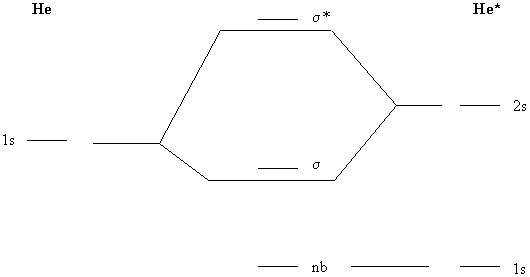
Heteronuclear molecular orbital diagram
Tutorial on Chemical Bonding, Part 8 of 10 (Molecular orbitals) The molecular orbital model is by far the most productive of the various models of chemical bonding, and serves as the basis for most quantiative calculations The resulting molecule is 243 kJ/mole more stable than the parent atoms. As we might expect, the bond energy of the heteronuclear molecule is... Molecular orbital diagram | Heteronuclear diatomics A molecular orbital diagram, or MO diagram for short, is a qualitative descriptive tool explaining chemical bonding in molecules in terms of molecular orbital theory in general and the Linear combination of atomic orbitals molecular orbital method (LCAO method) in particular.[1][2][3] A... Molecular Orbital Theory: Energy level diagram for molecular orbitals Molecular orbital theory was put forward by Hund and Mullikan in 1932. This theory is modern equal energies (in case of homonuclear molecules) or of comparable energies (in case of heteronuclear This energy diagram for the molecular orbitals is shown in Fig.1 However, experimental evidence for...
Heteronuclear molecular orbital diagram. PDF Microsoft PowerPoint - Symmetry-and-Molecular-Orbitals.htm Molecular Orbital Energy Level Diagram. •Better Overlap => Higher DE •Bond Order = ½(# of B.O. e - - # of A.O. e -) •Diamagnetic: all e- paired •Paramagnetic: with e- unpaired. Heteronuclear Diatomic Molecules. • A more electronegative • B less electronegative. Asked for: "skewed" molecular orbital energy-level diagram, bonding... Figure 4.10.4: Molecular Orbital Energy-Level Diagram for a Heteronuclear Diatomic Molecule AB, Where χ B > χ A . The bonding molecular orbitals are closer in energy to the atomic orbitals of the more electronegative B atom. Consequently, the electrons in the bonding orbitals are not shared... Molecular orbital diagram for a homonuclear diatomic molecule... Heteronuclear diatomic molecules have similar molecular orbital diagrams, but they take account of the fact that the basis atomic orbitals are different. Therefore, the diagram looks similar but is skewed. This means that the coefficients in the LCAO approximation equation for the atomic orbitals of the two... PDF Molecular orbital theory level diagram, state the molecular orbital configuration for simple homonuclear diatomic molecules, and predict the electron configuration for simple heteronuclear diatomic molecules. Molecular orbital theory. A molecule is defined as a stable combination of two or more atoms.
PDF Molecular Orbitals in | 9-2 Molecular Orbital Energy Level Diagrams Accordingly, a molecular orbital diagram such as Figure 9-5 is inappropriate for heteronuclear diatomic molecules. If the two elements are similar (as in NO or CN mole-cules, for example), we can modify the diagram of Figure 9-5 by skewing it slightly. PDF Microsoft PowerPoint - An introduction to Molecular Orbital Theory.ppt... • Molecule orbital theory (Robert Mullikan). • Electrons are delocalised - Different to Lewis and hybridisation (these are not MO). • Energy level diagram represents this interaction. - Two s orbitals interaction to create a low energy bonding and high energy anti-bonding molecular orbital. PDF Molecular Orbitals Molecular Orbital Diagrams. 1. Electrons preferentially occupy molecular orbitals that are lower in For heteronuclear molecules: 1. The bonding orbital(s) will reside predominantly on the atom of lower orbital Group theory is usually used to develop molecular orbital diagrams and drawings of more... Introduction to Inorganic Chemistry/Molecular Orbital Theory... Valence bond (VB) theory gave us a qualitative picture of chemical bonding, which was useful for predicting the shapes of molecules, bond strengths, etc. It fails to describe some bonding situations accurately because it ignores the wave nature of the electrons.
8.4 Molecular Orbital Theory - Chemistry Figure 8. This is the molecular orbital diagram for the homonuclear diatomic Be2+, showing the molecular orbitals of the valence shell only. The filled molecular orbital diagram shows the number of electrons in both bonding and antibonding molecular orbitals. PPT - Molecular Orbital Theory PowerPoint Presentation, free... Molecular Orbital Theory Diatomic molecules: Heteronuclear molecules In heteronuclear diatomic molecules, the relative contribution of MO diagram for HF Molecular Orbital Theory Because the contributions are not equal, the MO diagram will be skewed. There is a little bit of mixing between the... Molecular orbital theory in heteronuclear diatomics | Quizlet Describe how to draw a molecular orbital diagram for a heteronuclear diatomic molecule. -List the occupied atomic orbitals of both atoms, labelling Describe molecular orbital formation in molecule XY, where X and Y each contribute a 2s electron electron to a 2s orbital, drawing a molecular... PDF Slide 1 In molecular orbital (MO) approach - overlap orbitals for the whole molecule -bonding is therefore DELOCALISED. We will look first at DIATOMIC MOLECULES and only later move on to POLYATOMIC MOLECULES. Molecular Orbital Energy Level Diagram for a Heteronuclear Diatomic.
PDF lecture_1 | Molecular orbital diagrams: H2+ Molecular orbital diagrams: Similar processes for: B2 C2 N2 O2 F2 O2+ O2 O2- O22- Note: subtle changes in s/p mixing can sometimes cause a re-ordering of levels (e.g σg/πu in N2/O2) See Introduction to Molecular orbitals (Year 1). Heteronuclear diatomics: What happens when the two...
MO Diagrams | Molecular Orbital Diagram Maker A bare molecular orbital diagram is presented and you must drag the correct orbitals and labels onto the diagram. The diagram is then completed by filling the energy levels with the correct number of electrons. p-Block Heteronuclear diatomic molecules: Main Group Polyatomic Molecules.
Molecular orbital diagram - Wikipedia A molecular orbital diagram, or MO diagram, is a qualitative descriptive tool explaining chemical bonding in molecules in terms of molecular orbital theory in general and the linear combination of atomic orbitals (LCAO) method in particular.
"Molecular orbital diagram." In heteronuclear diatomic molecules, atomic orbitals only mix when the electronegativity values are similar. While MOs for homonuclear diatomic molecules contain equal contributions from each interacting atomic orbital, MOs for heteronuclear diatomics contain different atomic orbital...
Molecular Orbital Theory Heteronuclear Diatomic (Cyanide, CN...) Dr. Shields shows you how to draw the MO correlation diagram for cyanide (CN-), calculate the MO bond order, and write the MO electron configuration with an...
Molecular Orbital Theory Diatomic molecules: Heteronuclear... 3 Molecular Orbital Theory MO diagrams for other heteronuclear diatomics are formed in exactly the same way as that of H-F or those of the homonuclear diatomics: atomic orbitals of appropriate symmetry will interact to produce MO's. The orbtals that are closest in energy to one another will...
Molecular Orbitals - Molecular Orbitals for Heteronuclear Molecules The molecular orbitals in the heteronuclear case will in general be concentrated more around one nucleus than the other. The molecular orbital is said to be approximated mathematically by a linear combination of atomic orbitals and the technique is known as the LCAO-MO method.
How do we find out whether there is significant SP mixing in... - Quora Compare the molecular orbital diagram of CO and NO. You will notice that there is change in Are there any cases in which SP mixing wouldn't occur in a heteronuclear diatomic molecule containing B, C, or N? The molecular orbital diagram is: From the electronic configuration of Nitrogen molecule...
Molecular Orbital Theory Molecular Orbital Theory Problem: Write a molecular orbital diagram and determine the bond order for: (a) Ne2+ (b) C22Problem: Using energy level diagrams for the MO's of N2 Molecular Orbital Theory - Heteronuclear diatomic molecules For heterodiatomics, the energy of the bonding orbital is...
PDF set2b.ppt | Heteronuclear Molecules Heteronuclear Molecules. 2-43. • The relative energy of the bonding orbitals determines the • As the polarity difference between two atoms increases, the orbital energy difference also increases • Many properties of molecules can be interpreted through the use of the molecular orbital model, and in...
Molecular Orbitals: Molecular Orbital Theory | SparkNotes Figure %: Orbital correlation diagram for homonuclear diatomic molecules other than B2, C2, and N2. To draw the correlation diagrams for heteronuclear diatomic molecules, we face a new problem: where do we place the atomic orbitals on an atom relative to atomic orbitals on other atoms?
Molecular Orbital Theory: Energy level diagram for molecular orbitals Molecular orbital theory was put forward by Hund and Mullikan in 1932. This theory is modern equal energies (in case of homonuclear molecules) or of comparable energies (in case of heteronuclear This energy diagram for the molecular orbitals is shown in Fig.1 However, experimental evidence for...
Molecular orbital diagram | Heteronuclear diatomics A molecular orbital diagram, or MO diagram for short, is a qualitative descriptive tool explaining chemical bonding in molecules in terms of molecular orbital theory in general and the Linear combination of atomic orbitals molecular orbital method (LCAO method) in particular.[1][2][3] A...
Tutorial on Chemical Bonding, Part 8 of 10 (Molecular orbitals) The molecular orbital model is by far the most productive of the various models of chemical bonding, and serves as the basis for most quantiative calculations The resulting molecule is 243 kJ/mole more stable than the parent atoms. As we might expect, the bond energy of the heteronuclear molecule is...
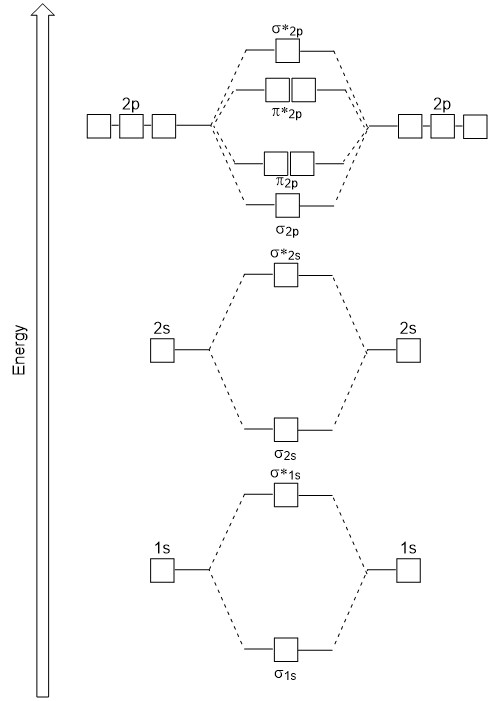
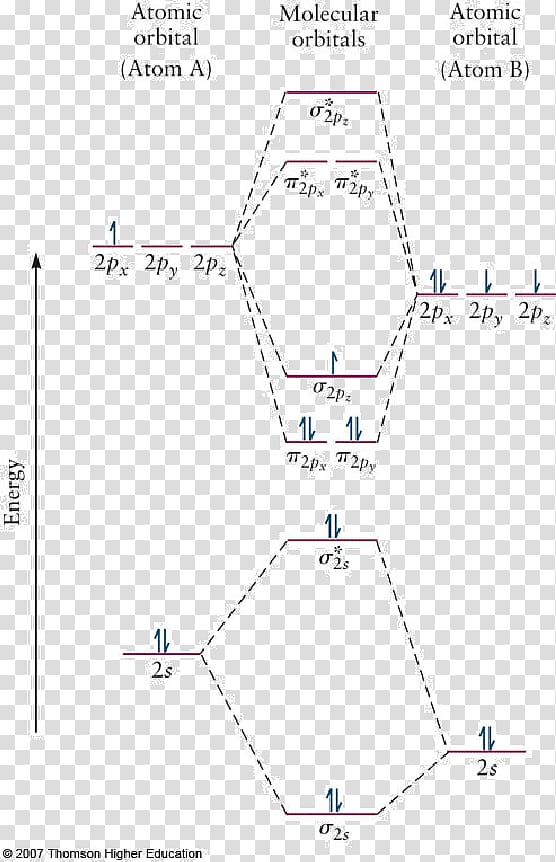
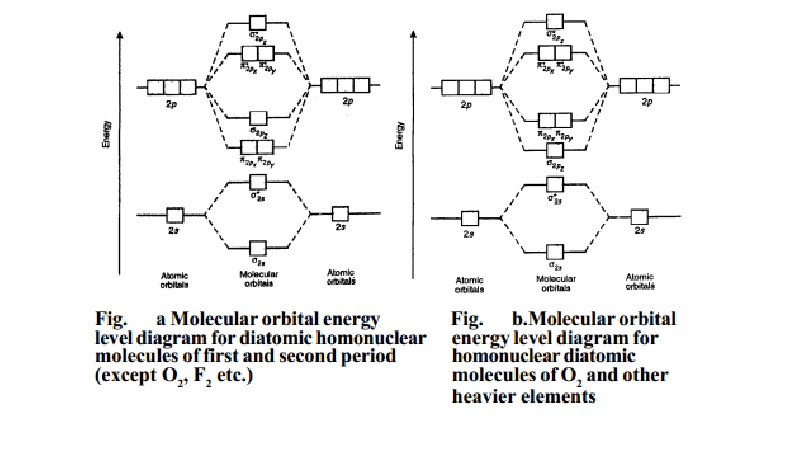
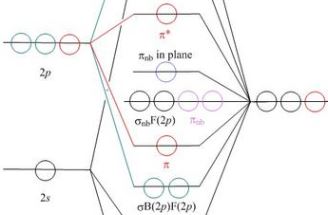

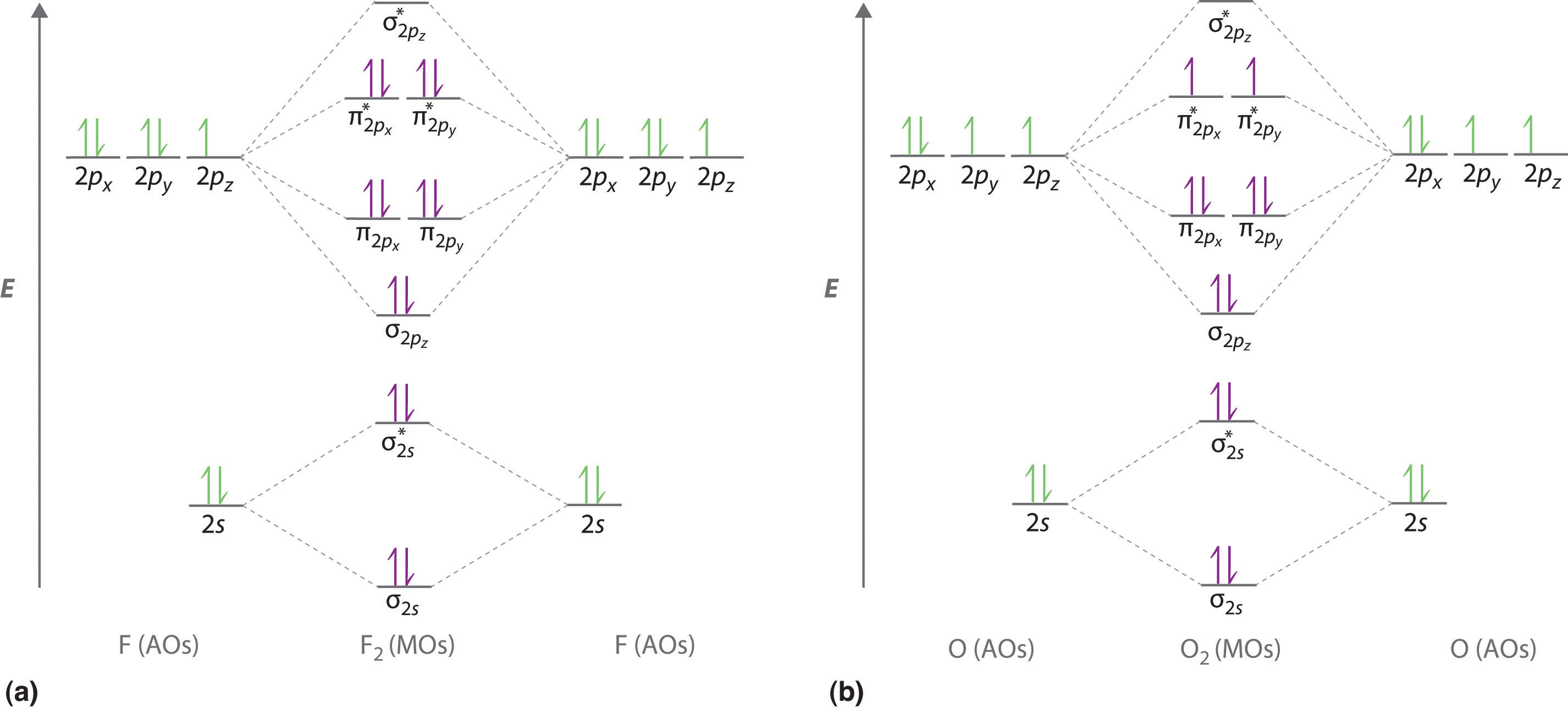



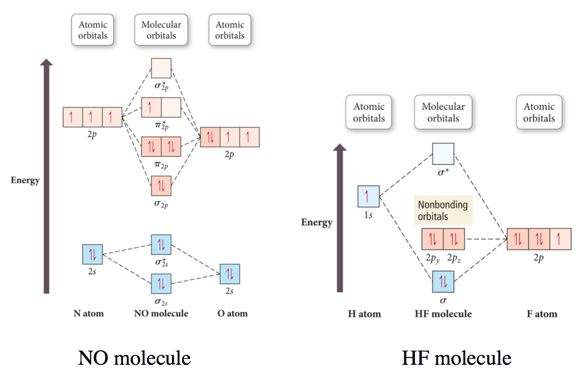
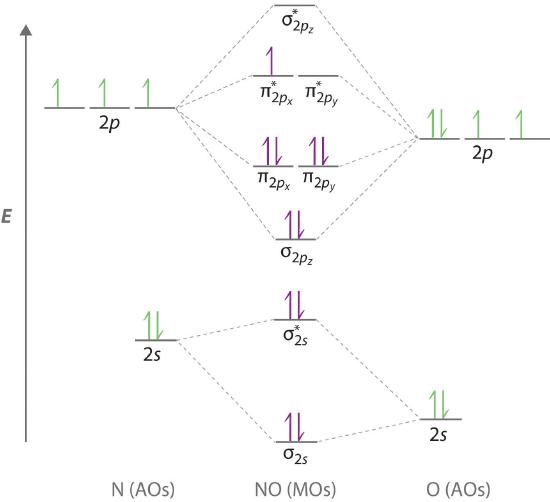

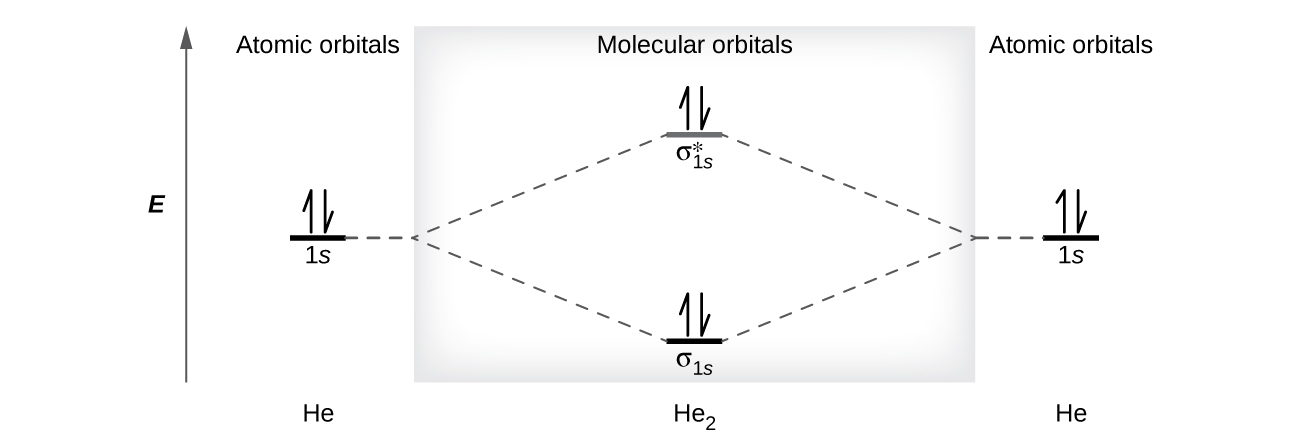


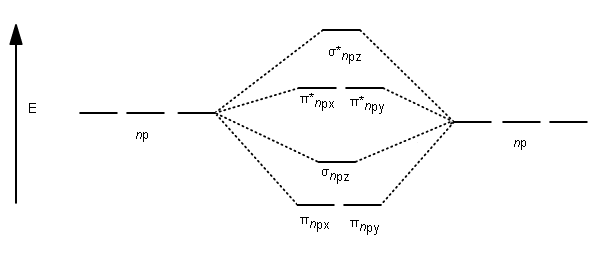





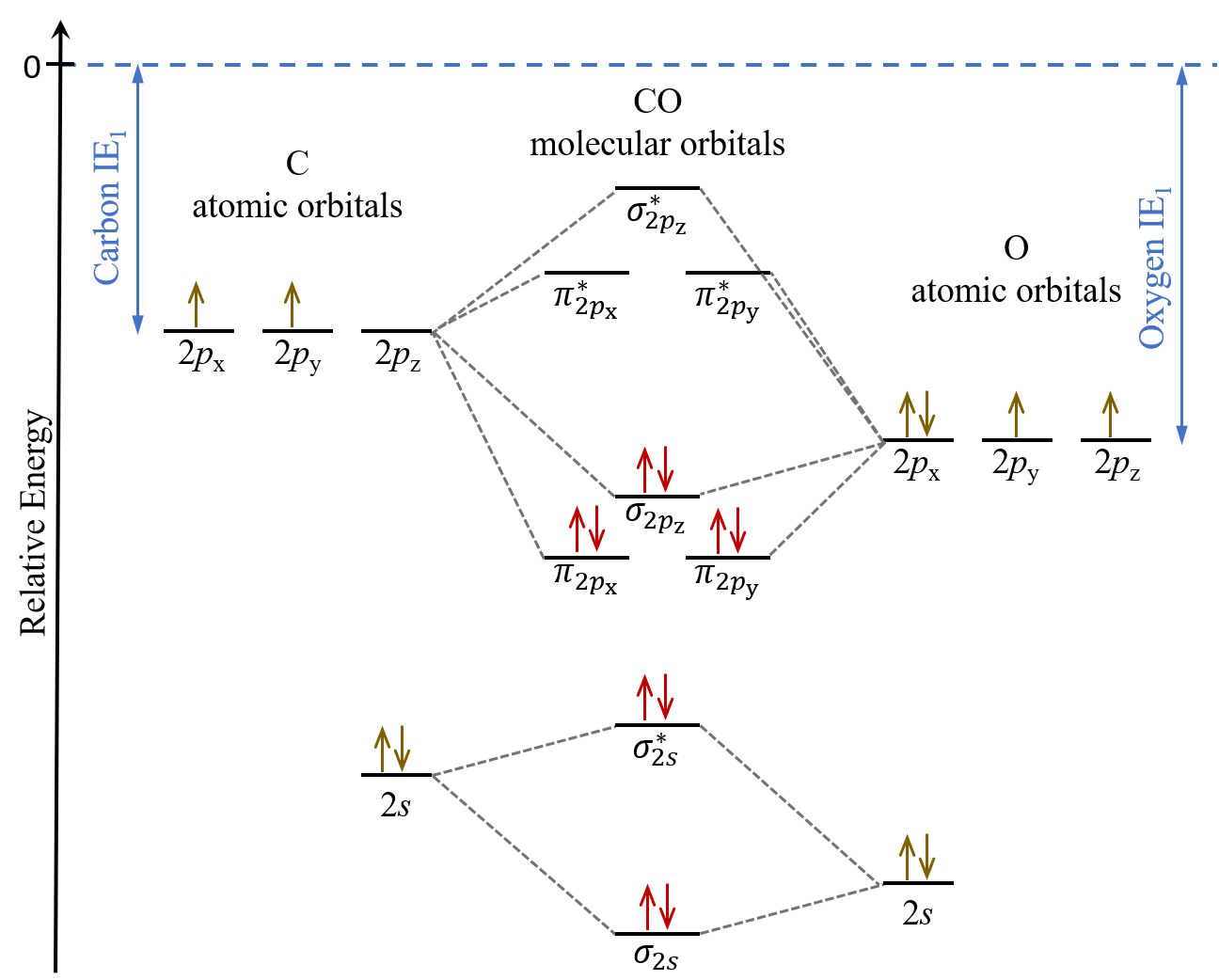


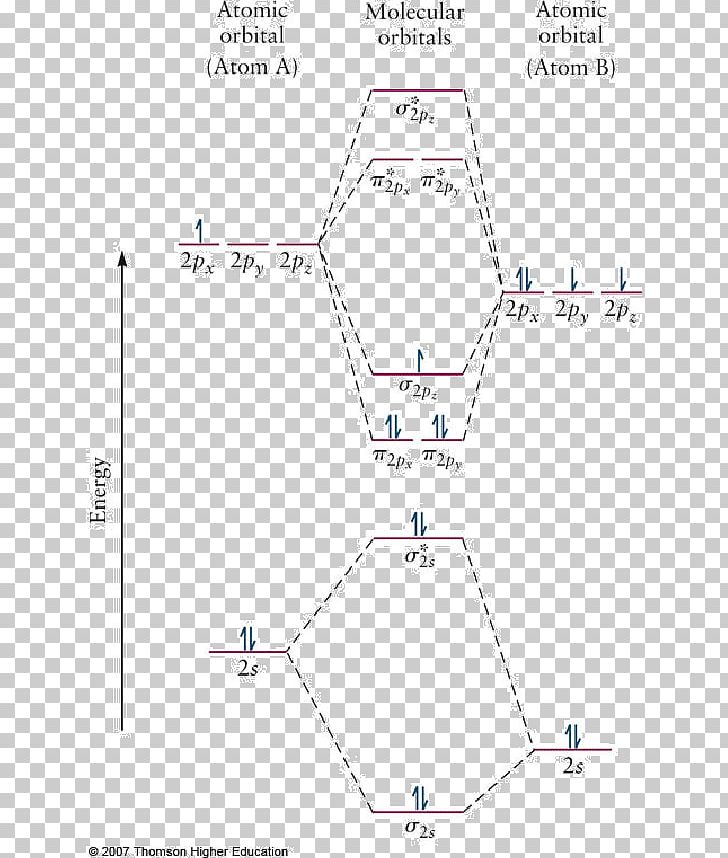


0 Response to "41 heteronuclear molecular orbital diagram"
Post a Comment